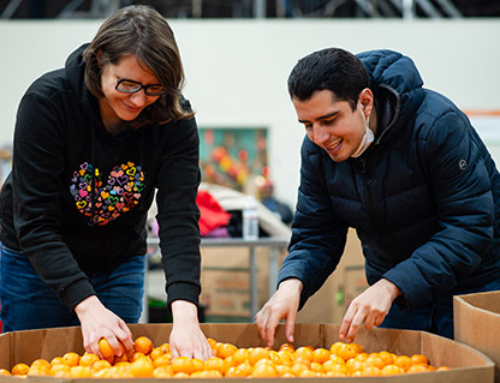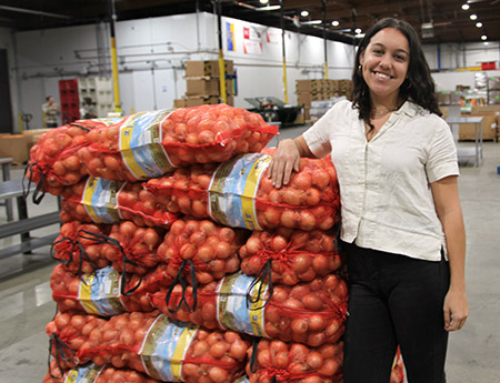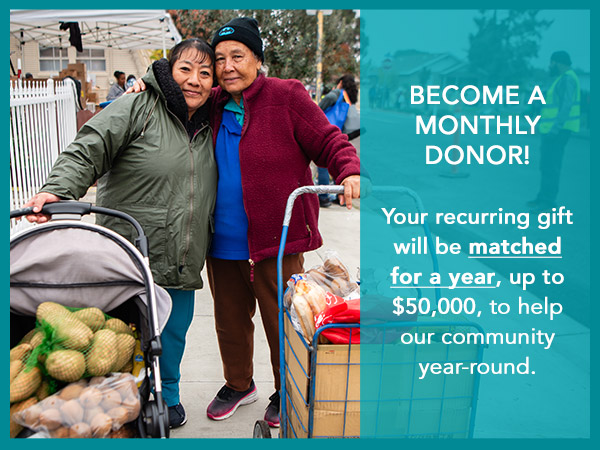By Alexa Senter, Marketing & Communications Manager
As you may already know, Alameda County is home to the country’s largest community of Afghans and Afghan Americans. This vibrant community has contributed to the rich tapestry of the East Bay’s history, economy, and culture. Since August 2021, they have also been on the front lines of responding to the refugee crisis that is still ongoing.
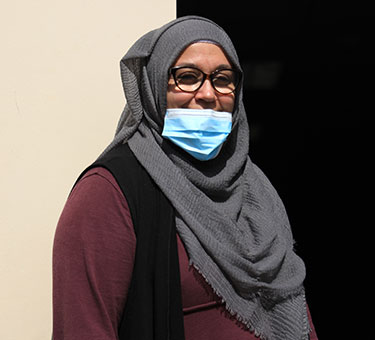
In our recent newsletter, we introduced you to the Muslim Community Center of the East Bay (MCC), located in Pleasanton, which has partnered with ACCFB since the early days of the pandemic. They grew their food program from a small pantry housed in a broom closet to reach more people. Sister Aminah (left), who leads these efforts at MCC, has been working with dozens of volunteers to meet the explosive growth in demand for their support. The program now offers a wide array of services, including a drive-through food distribution and a home delivery food program for folks who need food but don’t have transportation.
Throughout 2020 and into 2021, they worked tirelessly with vigor and passion to respond to community needs exacerbated by the pandemic. Then, the refugee crisis exploded late last summer. That’s when according to Sister Aminah, “My whole world turned upside down all over again.”
With the US military’s withdrawal from Afghanistan, the Taliban began aggressively reclaiming territory, and many citizens fled their homes and communities. It was all over the news here, with footage showing tens of thousands of people making their way to the Kabul airport, seeking passage to safety. Thousands were headed right here to California, which welcomed more refugees than any other US state. And, in particular, Alameda County, where an Afghan community was waiting with open arms.
As refugees began to arrive, MCC jumped into action. Betzy Mundo, the ACCFB Program Coordinator who works directly with MCC, reached out to Sister Aminah with that all-important question: “What do you need?” Our team began sourcing culturally appropriate foods like garbanzo beans, lentils, flatbread, tomato paste, and rice to supplement the produce and pantry staples they were already getting.
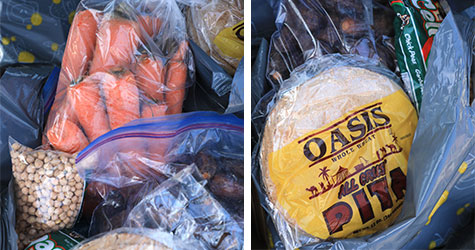
MCC already worked with the International Rescue Committee (IRC) before the crisis hit, regularly supporting with 2-3 refugee families a month. Since last summer, that partnership has expanded to include the Jewish Community Center, San Ramon Valley Islamic Center, and Catholic Charities. Together, these organizations have helped hundreds of families resettle and start building their lives again.
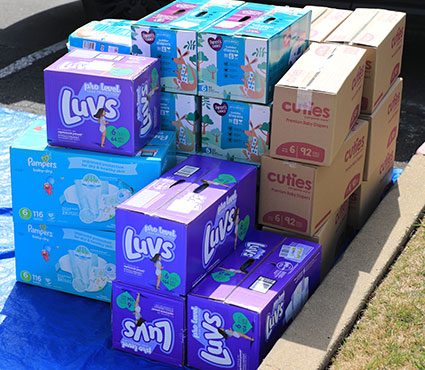
While food can be a universally comforting thing, especially during periods of transition and trauma, starting a new life in a new country requires a lot more than groceries. Newly arriving families need to be picked up from airports and have comfortable places to stay. MCC received a capacity grant from ACCFB to buy a van to help pick up supplies for their distributions. The van also allows volunteers to deliver furniture, kitchen equipment, toiletries, linens, toys for kids, and even bicycles so folks can have their own transportation. Betzy has also helped Sister Aminah source diapers, a much-needed and costly budget item for families arriving with young children.
Challenges remain and will continue to impact newly arrived families and individuals for a long time to come. Beyond the difficulty of being in a new country and potentially learning a new language, systemic barriers to stability still exist. Many refugees stay in donated Airbnbs or hotels. Free housing is wonderful, but what if you’re far away from a grocery store or bus stop? How do you find a job when you don’t know where you will live permanently or have access to transportation?
This crisis, which was front-page news last summer, hit our community hard and hasn’t gone away. Families are still arriving and doing their best to build a new foundation here in the East Bay while worrying about friends and family back home.
That means help is still needed and there are many ways to make a difference. Visit mcceastbay.org/refugee-support to learn about other ways to engage, volunteer, or donate.


